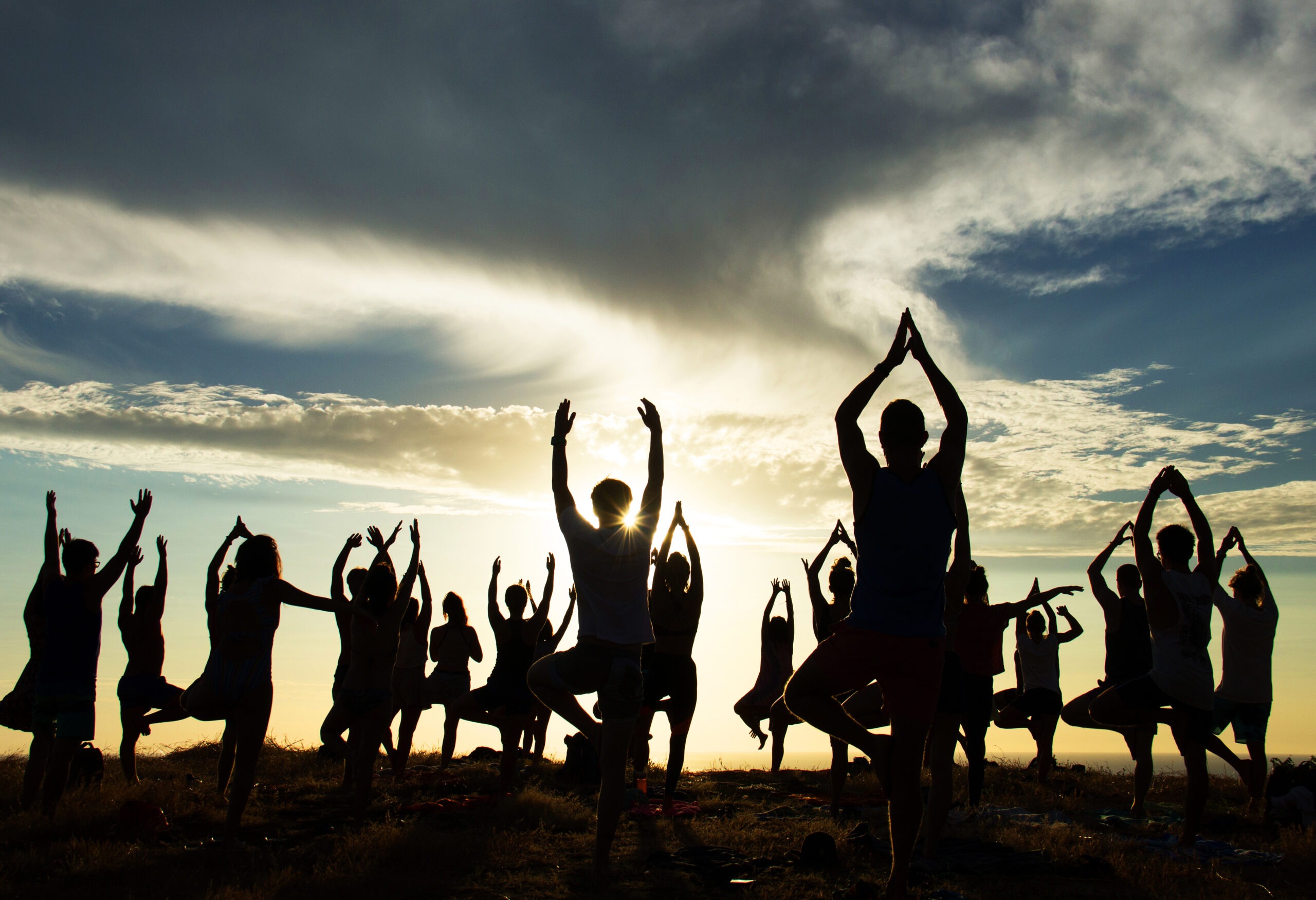Cvent CEO Reggie Agarwal recently stated that the event industry has reached a staggering $1.6 trillion! This stands as a testament to the global appetite for connectivity, knowledge exchange and memorable experiences. That being said, according to a McKinsey study the wellness industry has hit an even more impressive $1.8 trillion, driven by a universal shift towards holistic health and well-being.
The intersection of these two industries presents a unique opportunity for us as event professionals to enhance our offerings and maximize return on investment (ROI) by integrating wellness into event strategies.
The Synergy of Two Giants
The sheer scale of the events industry, combined with the expansive growth of the wellness sector underscores the potential for a mutually beneficial relationship. Event planners who embrace wellness not only meet the evolving demands of attendees but also create environments that foster deeper engagement and satisfaction.
Why Wellness Should Matter to Event Professionals
1. Enhanced Attendee Engagement and Satisfaction
Wellness practices at events can significantly improve the attendee experience. A holistic approach, encompassing the four pillars of wellness—movement, mindfulness, meals and meaning—can transform event outcomes. Incorporating these elements leads to energized attendees who are more likely to provide positive feedback and remain engaged throughout the event.
2. Boosted Learning and Retention
Incorporating wellness into event planning has been shown to improve memory. Movement, such as organized workouts or casual walking sessions, increases blood flow and supports neuroplasticity, making attendees more receptive to information. Nutrition also plays a crucial role; meals rich in brain-boosting nutrients enhance cognitive function and overall well-being, ensuring that attendees are physically and mentally prepared to absorb and retain information.
Read More: Leaning into Learning Styles
3. Positive Brand Association
Events that prioritize wellness not only benefit attendees but also enhance the hosting brand’s image. As consumers increasingly prioritize their health, they appreciate and remember brands that support their wellness journey. This positive association can lead to stronger brand loyalty and a more favorable perception in the market.
Practical Applications of Wellness in Events
Event planners can adopt several strategies to integrate wellness seamlessly into their programs:
Movement
Encouraging physical activity is essential. Event planners can schedule morning yoga sessions, offer fitness center access, and organize interactive activities like scavenger hunts or fun runs. Providing various seating options, such as standing desks and lounge areas, can also cater to different preferences and promote movement throughout the event.
Mindfulness
Creating opportunities for mindfulness can transform the attendee experience. But mindfulness goes beyond incorporating short meditation sessions. Designing agendas with ample breaks and offering quiet spaces for reflection can help attendees stay focused and reduce stress. Mindfulness activities should extend beyond meditation to include thoughtful scheduling and opportunities for meaningful interactions.
Meals
Nutrition should be a cornerstone of event planning. Offering diverse and nutritious meal options that cater to various dietary preferences ensures that all attendees are well-nourished and satisfied. Including brain foods like berries, nuts and fish can enhance cognitive function and energy levels, supporting overall engagement and learning.
Meaning
Incorporating elements of meaning and purpose into events can deeply resonate with attendees. Activities such as community service projects, environmental stewardship and opportunities for personal growth can create lasting impressions and foster a sense of connection and fulfillment.
The Bottom Line: ROI and Beyond
Read More: 7 Ways to Embed Wellness in Your Meetings
Integrating wellness into event planning is not just a trend but a strategic approach that yields significant returns. When attendees leave an event feeling energized and valued, they are more likely to provide positive feedback, engage in future events, and spread favorable word-of-mouth. This enhanced attendee experience translates into higher ROI, making wellness an essential component of successful event planning.
Conclusion
The fact that the wellness industry is outpacing the events industry shows just how important wellness is to our attendees. That is why we are putting on events, right? For the attendee? So why not take advantage of a golden opportunity for event professionals.
By prioritizing wellness, planners can enhance attendee engagement, improve learning outcomes and foster positive brand associations. As the demand for wellness continues to grow, those event professionals who embrace this integration will not only meet the needs of today’s health-conscious attendees but also set the standard for the future of event planning.
—
 David T. Stevens is a 20-year veteran planner and 5x Fittest Male #EventProf, an honor achieved by topping the occupational leaderboard of the annual CrossFit Games Open. He has planned meetings, events and incentives for media, live entertainment, agency, association and corporate organizations. Stevens has a Delos Wellness for Meetings and Event Certificate, he is Pandemic Meeting Event Design certified, and he has been recognized by a number of industry organizations for his contributions to improving wellness in the sector and is a SXSW 2024 Mentor.
David T. Stevens is a 20-year veteran planner and 5x Fittest Male #EventProf, an honor achieved by topping the occupational leaderboard of the annual CrossFit Games Open. He has planned meetings, events and incentives for media, live entertainment, agency, association and corporate organizations. Stevens has a Delos Wellness for Meetings and Event Certificate, he is Pandemic Meeting Event Design certified, and he has been recognized by a number of industry organizations for his contributions to improving wellness in the sector and is a SXSW 2024 Mentor.
He credits his ability to create memorable experiences for event attendees to the clarity he gleans from workouts and mental breaks. He is the co-founder of event-wellness consulting firm Olympian Meeting—where he co-authored, along with a medical doctor and nutrition coach, a white paper on the increased ROI that can result from incorporating wellness elements into a meeting. Stevens also hosts a web series called Return on Wellness.




